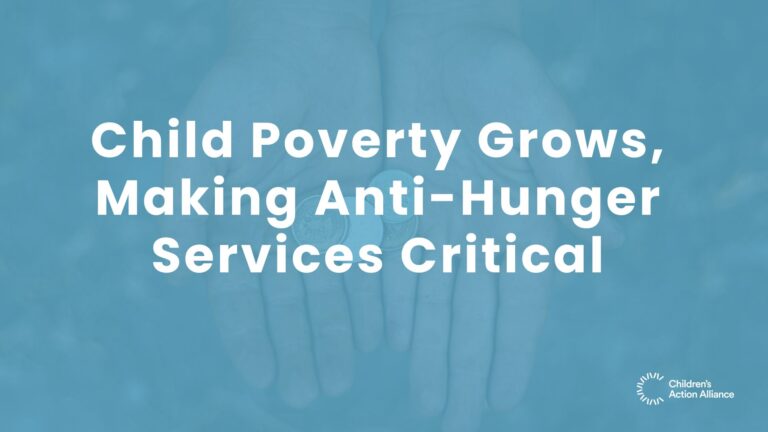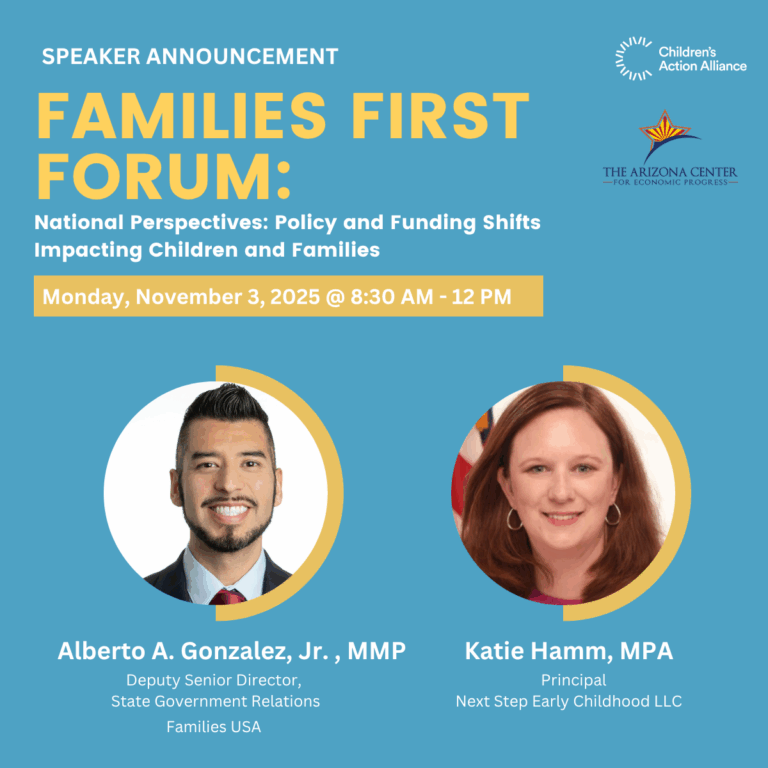
Kinship families are the backbone of Arizona's child welfare system.
May is Foster Care Awareness Month! On May 1st, Arizona’s Department of Child Safety (DCS) ushered in this month by making an important and positive administrative change to make it easier for kinship families to access financial supports. Kinship families—grandparents, aunts, uncles and other relatives—are the backbone of Arizona’s child welfare system. They provide loving homes for over 40% of all foster children in the state. However, 87% of kinship foster placements are unlicensed, making them ineligible for a $640 per child monthly foster care maintenance payment. Instead, unlicensed kinship families receive a $75 per child monthly kinship stipend and are eligible to apply for TANF “child-only” benefits which provide about $164 a month.
Even though nearly 100% of kinship foster placements are eligible for these benefits, just 32% receive them. CAA partnered with DCS to provide kinship caregivers with assistance filling out and submitting the TANF application. Now, more kinship families will be able to access the supports they need to care for their relative foster children. CAA thanks the Department of Child Safety for supporting kin who step up and care for Arizona’s foster children. We also thank Senator Brophy McGee for partnering with Arizona’s Grandparent Ambassadors and Kinship Caregivers in championing this issue.
CAA will continue to partner with the Arizona Grandparent Ambassadors and Kinship Caregivers to advocate for equal supports for unlicensed kinship care providers. You can read more about this issue in our policy brief.
—Molly Dunn, JD, Director of Child Welfare & Juvenile Justice Policy



